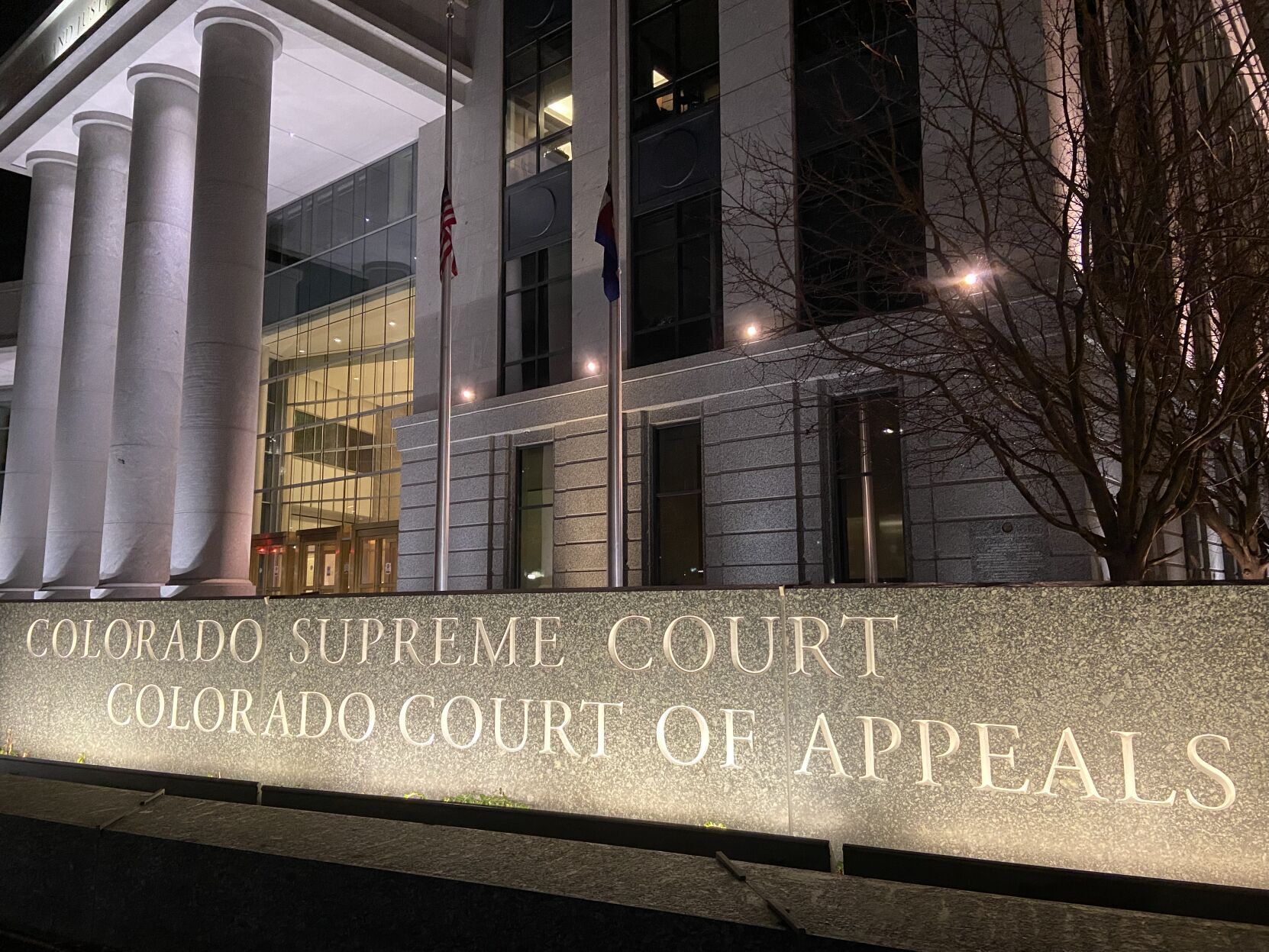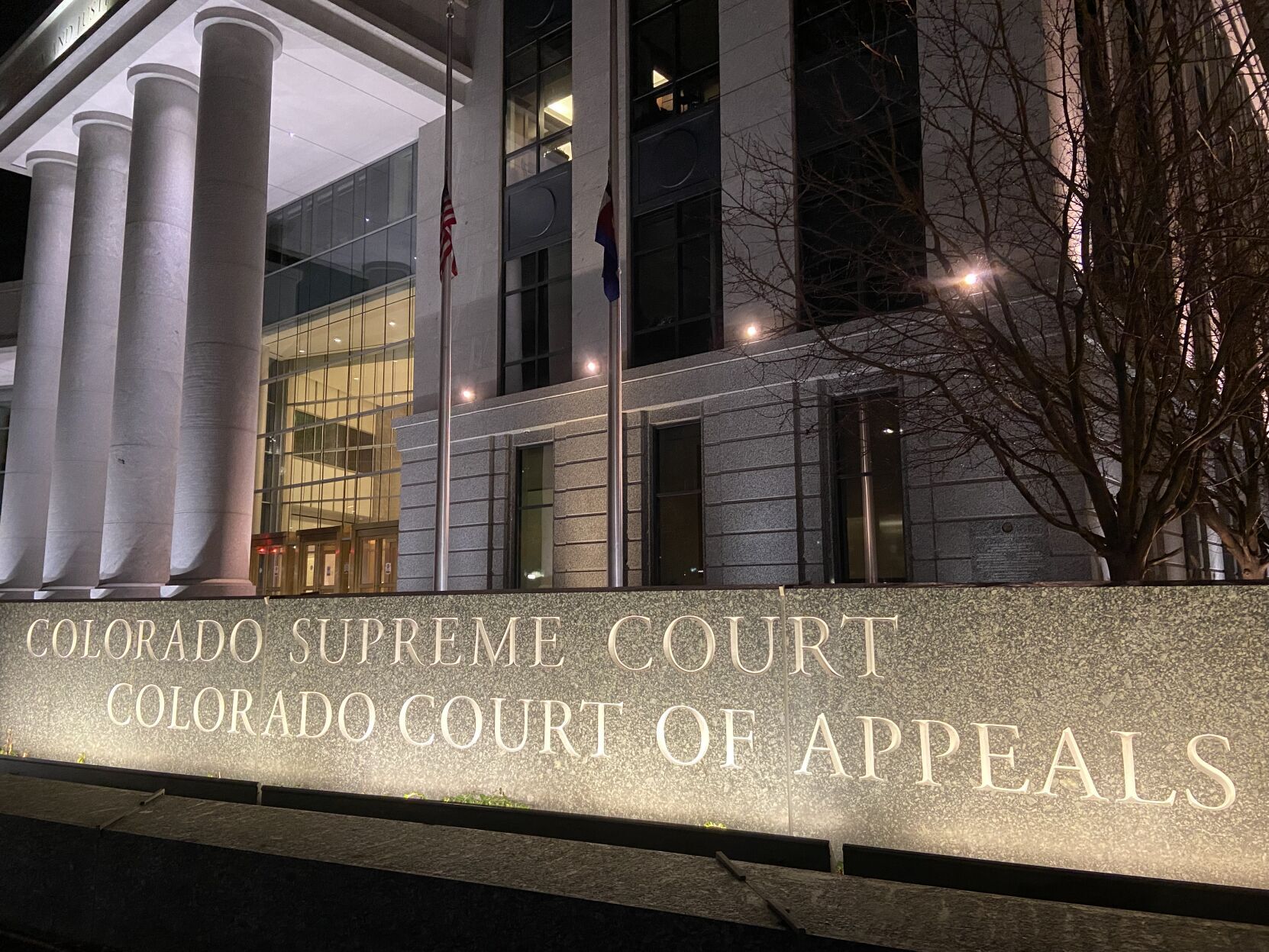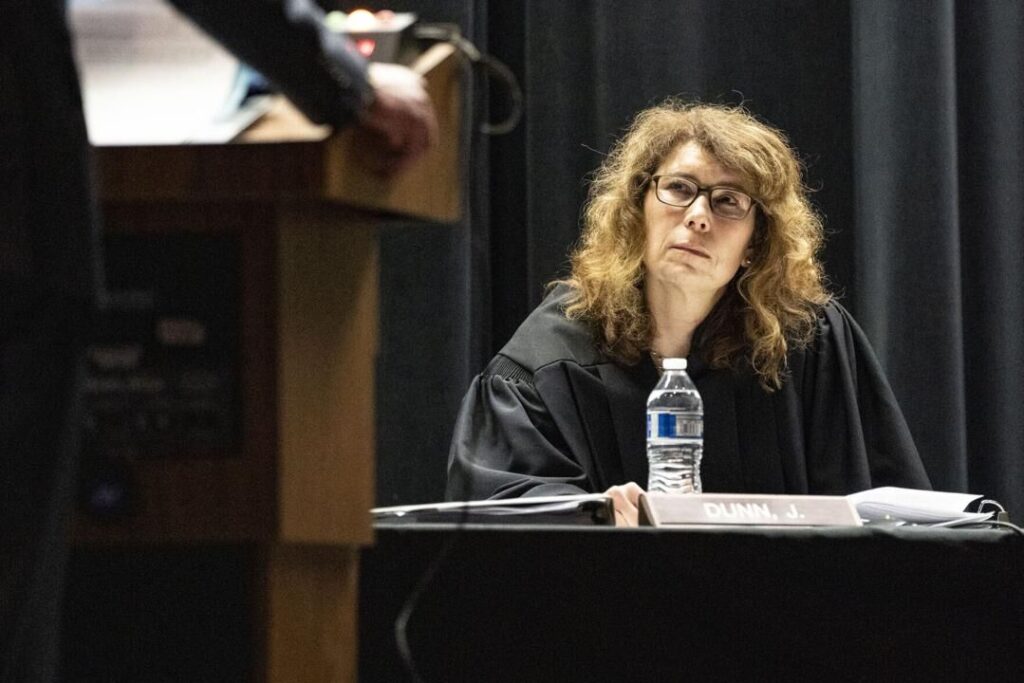Colorado’s Judicial Department subpoenaed over lack of access to evidence in scandal investigation

Colorado’s Commission on Judicial Discipline has subpoenaed the state’s Judicial Department – and by extension its Supreme Court – to force it to cooperate in its inquiry into the alleged coverup of misconduct by judges following concerns the third branch of government has not been forthcoming with information, The Gazette has learned.
Legal experts say the unprecedented move sets up a critical constitutional showdown between the state’s highest legal authority and the body charged with investigating the judges who occupy it.
“The production of records has not otherwise occurred voluntarily, and within its authority under the Rules of Judicial Discipline, the Commission has had to take steps to compel the production of information and records,” the commission told The Gazette in a statement responding to the newspaper’s questions.
The commission would not directly say it issued a subpoena, but its rules limit its powers to compel the production of evidence, documents or testimony to subpoenas. Also unclear is when the subpoena was issued.
The Judicial Department on Monday declined to comment.
Colorado commission pushes first-ever independent watchdog to probe judicial misconduct
The subpoena is the result of repeated requests from the commission since last summer seeking information about allegations contained in a two-page memo that implied years of judicial misconduct were intentionally covered up. It’s unclear whether the department has ignored the commission’s requests or provided only pieces of what it seeks.
The memo is at the center of a year-long scandal in which a former high-ranking Judicial Department official was allegedly given a $2.5 million contract to silence a threatened sex discrimination lawsuit that would expose the department’s misdeeds.
Additionally, discipline commission members appeared irked last week when they learned the Supreme Court said it had given “unfettered access” to sensitive documents and information tied to the scandal to a pair of investigative law firms the Judicial Department hired to look into the matters – but not to the commission.
“This most certainly is an epic clash that sets up a critical showdown of Constitutional authority,” University of Colorado law professor Richard Collins told The Gazette. “The difficulty of the whole thing is the Supreme Court would have to decide the scope of its own powers and its rules. There is no way around that.”
The Colorado Constitution directly establishes the judiciary as its third branch of government, but also separately creates the commission to investigate and discipline judges. But the Supreme Court, which sits atop the department, writes the rules that govern the commission’s work and controls its purse strings.
Chief Justice Brian Boatright told a joint meeting of the Colorado Senate and House judiciary committees on Wednesday the Supreme Court was committed to transparency in its investigations surrounding the memo and “we’re giving them unfettered access,” he said of the two companies the department hired to conduct those inquiries.
But Commission chairwoman Elizabeth Espinosa Krupa, an attorney, later told legislators the commission wasn’t as fortunate. The commission reiterated the sentiment in its statement to The Gazette.
“As stated at the SMART hearing, the Colorado Commission on Judicial Discipline has not been provided unfettered access to the judicial department’s records,” the commission told The Gazette.
In a surprise move at the legislative hearing, the commission asked legislators to move it out from under the financial oversight of the Supreme Court and create a new Office of Judicial Discipline.
The reason, according to documents the commission filed with the judiciary committees, is to stop the court from attempting to influence what the commission investigates and how – including the memo and its allegations.
Specifically, the commission said it’s been unable to pay a Denver law firm it hired last year to look into the coverup scandal, a move it has said it did because information the commission sought from the Judicial Department wasn’t easily gotten.
It’s unclear whether the commission has ever subpoenaed the Supreme Court in the past, but experts say it’s highly unlikely. More troubling, however, is how such a subpoena would be enforced, the equivalent of a contempt citation.
The commission’s own rules – much of which are drafted and approved by the Supreme Court – require the high court to appoint a “special master” to oversee such a contempt proceeding. The special master would render a decision that must go before the Supreme Court to uphold or dismiss.
The ambiguity of enforcing a subpoena against the Judicial Department, which includes the court, leaves much to interpretation, experts say.
“The Constitution in any state or country doesn’t speak to everything and is not impulsive and is why we have so many ambiguities,” according to Tom Cronin, a politics professor at Colorado College.
Collins said the Constitution carries great authority.
“I would stress the fact that the commission itself is a constitutional undertaking, it’s not as if it’s some appointed body that can be disregarded,” he said. “Does the commission have independent authority and is that a valid provision since the Constitution says there are only three branches of government?”
The Supreme Court is composed of seven justices, each of them named by the governor and later retained by voters to renewable 10-year terms. Judges must retire at age 72.
The discipline commission has 10 members: two district and two county court judges named by the Supreme Court’s chief justice; two attorneys named by the governor; and four citizens who are neither attorney nor judge, also appointed by the governor.
The scope of the commission’s disciplinary reach is limited to one year after a judge retires from the bench. However, its authority renews if a judge returns to the state’s senior judge program, where retired jurists remain on the bench in a limited capacity to assist with workloads.
The commission signed an agreement with the Judicial Department in 2010 that said the department would turn over any records of allegations of misconduct by judges no matter the result of their own internal inquiries.
Judges, however, follow their own rules of professional conduct which require them to turn over any records of allegations of misconduct directly to the commission when they have first-hand knowledge of them.
When the contents of the memo were divulged in February 2021, the commission wrote Boatright to say its records in the past five years didn’t reflect any of the allegations it contained about judges and wanted to know why not, according to copies of the correspondence obtained by The Gazette.
Additionally, the commission has said it was never told about the memo itself until newspaper reports uncovered it.
The Gazette in December revealed how six of the sitting Supreme Court justices were generally aware of the memo in 2019 – two years before it was exposed. Until then, the justices had only said they had seen the memo for the first time in February 2021 following newspaper reports but did not address whether they knew of it.
At least six investigations have been launched into the memo and the circumstances surrounding it: two by the Judicial Department, one by the judicial discipline commission, one by the state Office of Attorney Regulation Counsel which disciplines lawyers, one by the FBI, and one by the state auditor. All are pending.
The companies hired by the Judicial Department – Investigations Law Group and a company run by former U.S. Attorney Robert Troyer – were the result of a public-bid process overseen by a panel of state officials assembled by the governor, attorney general and both houses of the Legislature.
The memo was allegedly written by then-Human Resources director Eric Brown in early 2019 and laid out a number of examples of judicial misconduct that former Judicial Department chief of staff Mindy Masias was prepared to expose in a sex discrimination lawsuit.
Masias was being fired at the time over financial irregularities and was prepared to sue because she was being treated differently than a number of other department officials, mostly men, whose conduct was allegedly worse.
To prevent the tell-all lawsuit, former State Court Administrator Christopher Ryan has said the department gave Masias a $2.5 million judicial training contract for a company she had formed. Ryan has alleged the decision was backed by then-Supreme Court Justice Nathan “Ben” Coats.
The department has said the other justices also approved the contract award, but denied it was part of a quid-pro-quo deal.
Ryan and Brown resigned shortly after the contract was exposed, but the memo and its contents did not surface until February 2021.
Faced with being fired in October 2018, Masias took family medical leave before she could be dismissed. She resigned just before signing the contract and received thousands of dollars in back pay. Following news reports, the department canceled the contract in July 2019, technically because Masias had not submitted to a background investigation as the contract required.
She has never spoken publicly about the contract or the memo.














